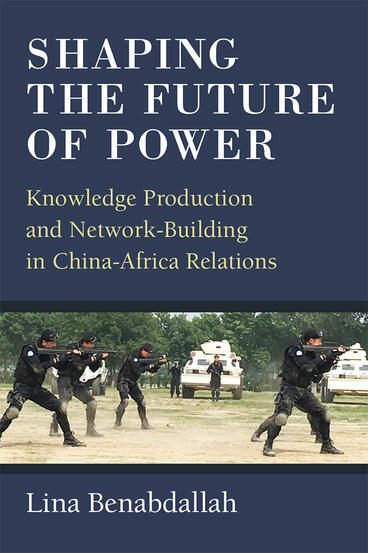Shaping the Future of Power
Knowledge Production and Network-Building in China-Africa Relations
Probes the power mechanisms that build, diffuse, and project China’s power in Africa
Description
China’s rise to power is one of the biggest questions in International Relations theory (IRT) and foreign policy circles. Although power has been a core concept of IRT for a long time, the faces and mechanisms of power as it relates to Chinese foreign policymaking has changed the contours of that debate. The rise of China and other powers across the global political arena sparks a new visibility for different kinds of encounters between states, particularly between China and other Global South states. These encounters are more visible to IR scholars because of the increasing influence that rising powers have in the international system. This book shows that foreign policy encounters between rising powers and Global South states do not necessarily exhibit the same logics, behaviors, or investment strategies of Euro-American hegemons. Instead, they have distinctive features that require new theoretical frameworks for analysis. Shaping the Future of Power probes the types of power mechanisms that build, diffuse, and project China’s power in Africa. One must take into account the processes of knowledge production, social capital formation, and skills transfers that Chinese foreign policy directs toward African states to fully understand China’s power-building mechanisms. The relational power framework requires these elements to capture both the material aspects and ideational people-centered aspects to power. By examining China’s investments in human resource development programs for Africa, the book reveals a vital, yet undertheorized, aspect of China’s foreign policy making.
Lina Benabdallah is Assistant Professor of Politics and International Affairs at Wake Forest University.
Reviews
"Benabdallah’s work presents a major and significant challenge to traditional understanding of power politics between great powers... [her] contribution is a must-read not just for scholars of China-Africa relations, but for all who are interested in understanding China’s role in the world today."
- Washington Post
—The Washington Post, Monkey Cage
"[Readers] will be intrigued by the numerous examples of Chinese efforts to forge complex networks of influence throughout the region to advance Beijing’s own version of soft power, including through the establishment of Confucius Institutes at universities across Africa."
- Nicolas van de Walle
—Foreign Affairs
"Benabdallah develops a novel and innovative conceptualization of power in international relations...This is an excellent, empirically-based and rich, but theoretically sophisticated book which should be widely read by all those interested in the evolution of China-Africa relations." - African Studies Review
- African Studies Review
"Shaping the Future of Power: Knowledge Production and Network-Building in China–Africa Relations is an important contribution to China scholarship and to China–Africa studies in particular... Benabdallah's detailed and thoughtful study is a founding in-depth take on what “strengthening people-to-people ties” means in practical form and for international relations theory." - Lauren Johnston, The China Quarterly
- Lauren Johnston
"Benabdallah has truly managed to create an indispensable work. ...I would most certainly suggest the book to anyone interested in the contemporary Chinese foreign policy strategy, regardless of their academic background and relationship with African studies."
- Alexander Dontsow
—Connections: A Journal for Historians and Area Specialists
"Reflecting, and speaking to, a shift in perspectives on foreign policy and development, Lina Benabdallah makes a timely and powerful contribution to the debate on the future of international development in a world in which traditional power structures are being radically reconfigured."
- Miriam Driessen
—The Journal of Development Studies

